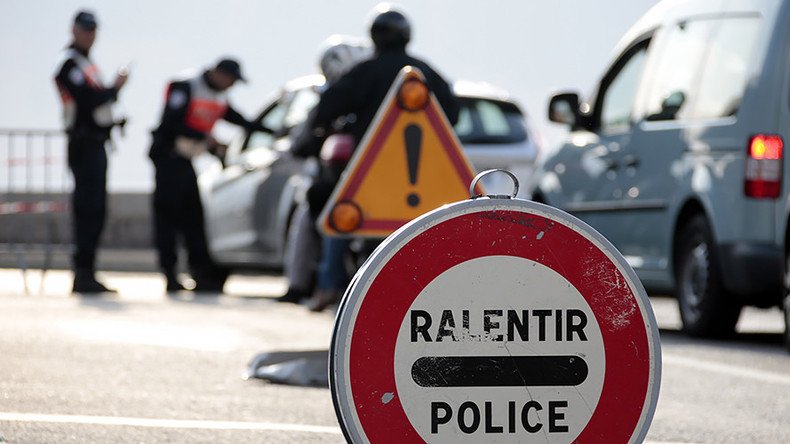France to extend border checks due to ‘persistent’ terror threat

France will continue to conduct checks at the borders with the other Schengen zone states until late April 2018, the Interior Ministry said, citing the ongoing threat of terrorist attacks on French soil.
“Risk analysis... confirms the existence of a persistent level of threat,” the French Interior Ministry said, commenting on its decision. It also added that fears are that Islamic State (IS, formerly ISIS/ISIL) could be plotting further attacks on the territory of France.
Justifying the border control extension, the French authorities said France had been targeted in 22 planned terrorist attacks so far in 2017 alone. It added that five of these attacks were carried out by the extremists while five others were thwarted when in progress and 12 more were prevented from happening at all, AFP reports.
The authorities pointed out that one of the major threats to France comes from “internal mobility” within the Schengen zone, adding that crossing the internal borders of the EU still remains part of a strategy used by terrorist organizations, the French Le Point weekly reports.
The national border checks have proved their “usefulness” over the recent months, according to the country’s government.
The ministry informed the EU about its decision in a note sent to Brussels on October 3, adding though that controls will “respect the principle of proportionality.”
The European Commission confirmed on Thursday that it had received France’s notification concerning the extension of the border controls along with the similar documents submitted by Germany and Denmark, adding that it would “assess” all the notifications.
France abolished border checks with neighboring European countries under the 1985 Schengen agreement, but re-introduced them in 2015. The volte face followed a series of deadly terrorist attacks including the Bataclan attack in November of 2015, when 130 people were killed in Paris.
In July 2016, the French southern city of Nice was hit by another major assault, in which a lone-wolf terrorist drove a 19-ton cargo truck into crowds of people celebrating Bastille Day on the Promenade des Anglais. On that occasion, 86 people were killed and hundreds injured.
Both attacks were claimed by Islamic State. Following the Paris 2015 attacks, France also imposed a state of emergency that has been repeatedly extended up to the present day.
On October 3, the lower house of the French parliament adopted a new anti-terrorism draft law that is regarded by many as a conversion into normal law of the emergency measures, which have been in place in France since late 2015.
The bill, which is yet to be approved by the French Senate, is aimed at increasing law enforcement powers in the fight against terrorism. It particularly gives the interior ministry powers to set up security zones without the approval of a judge.
Within those zones, the movement of people and vehicles can be restricted and searches can be conducted. The law also says that those regarded as a threat to national security can be subjected to electronic surveillance.
Ahead of the vote on the anti-terrorism bill, France’s interior minister Gerard Collomb said that “nobody is safe” in the country as “it is still in a state of war.” The legislation is, however, criticized by some human rights activists as an infringement on civil liberties.













